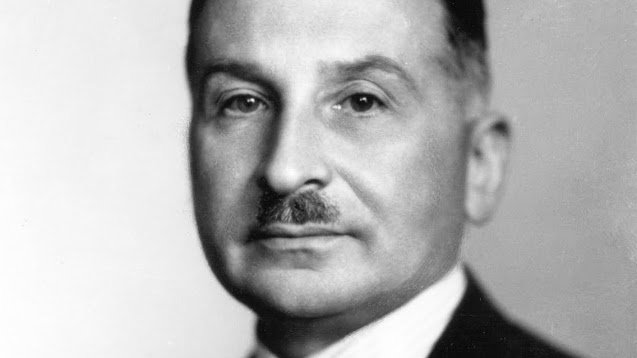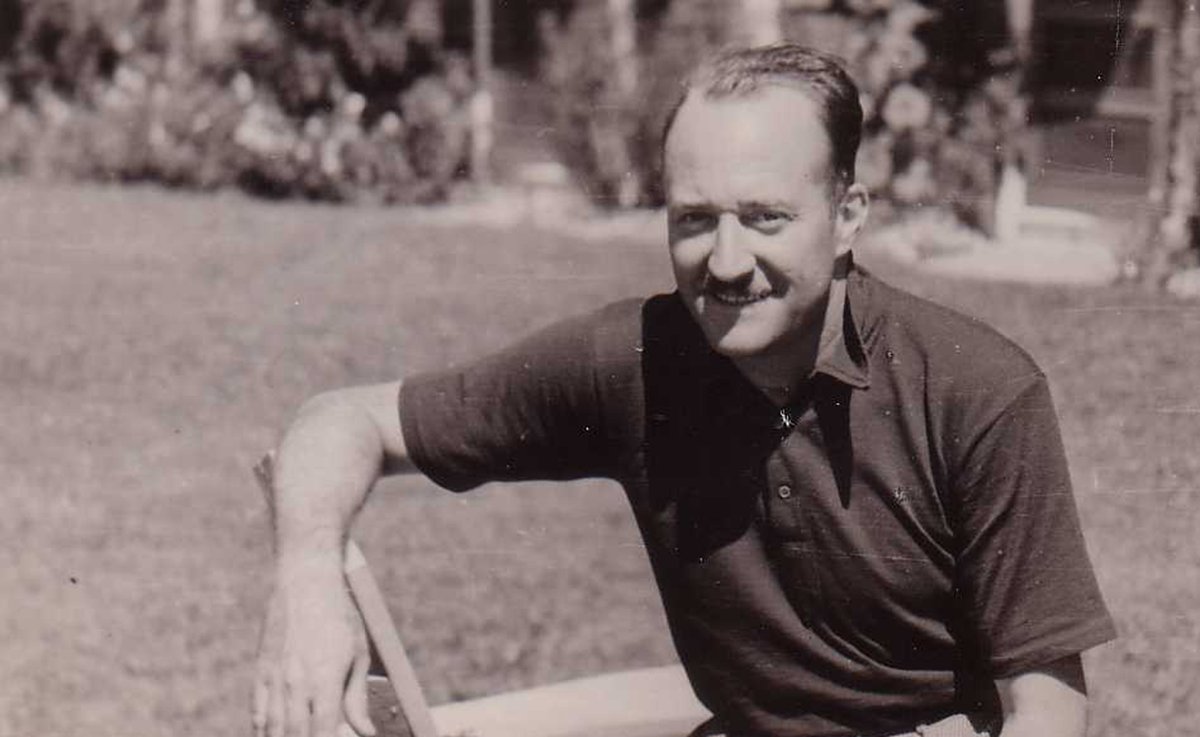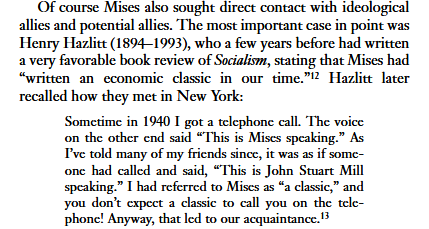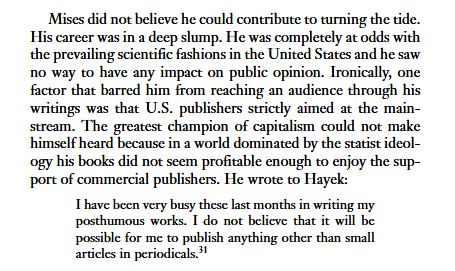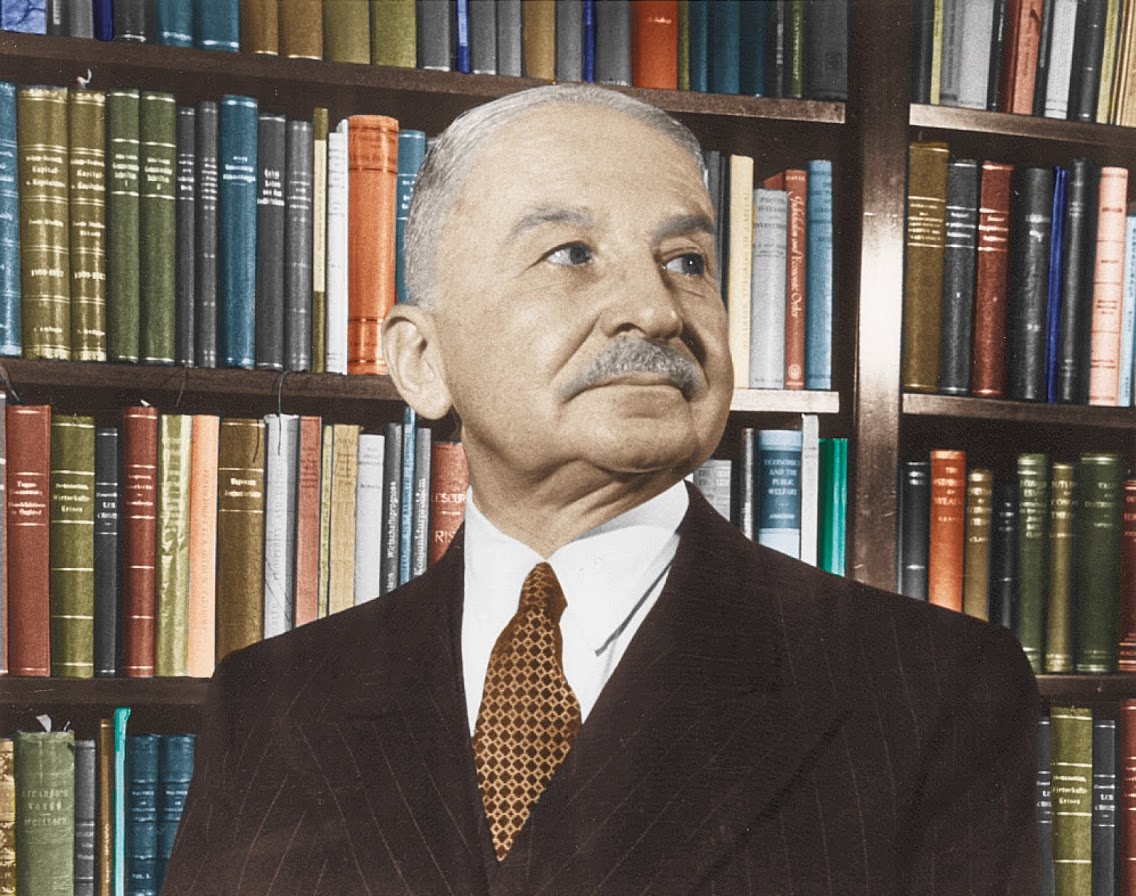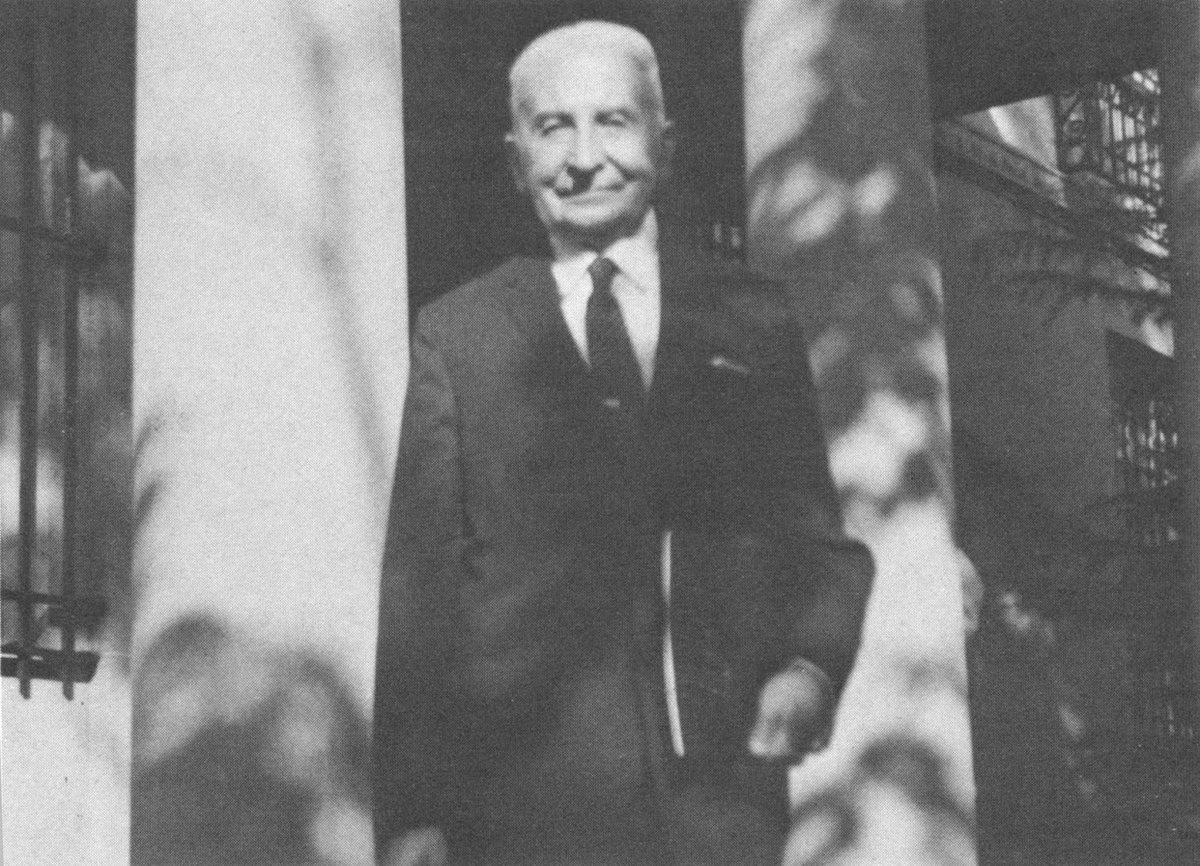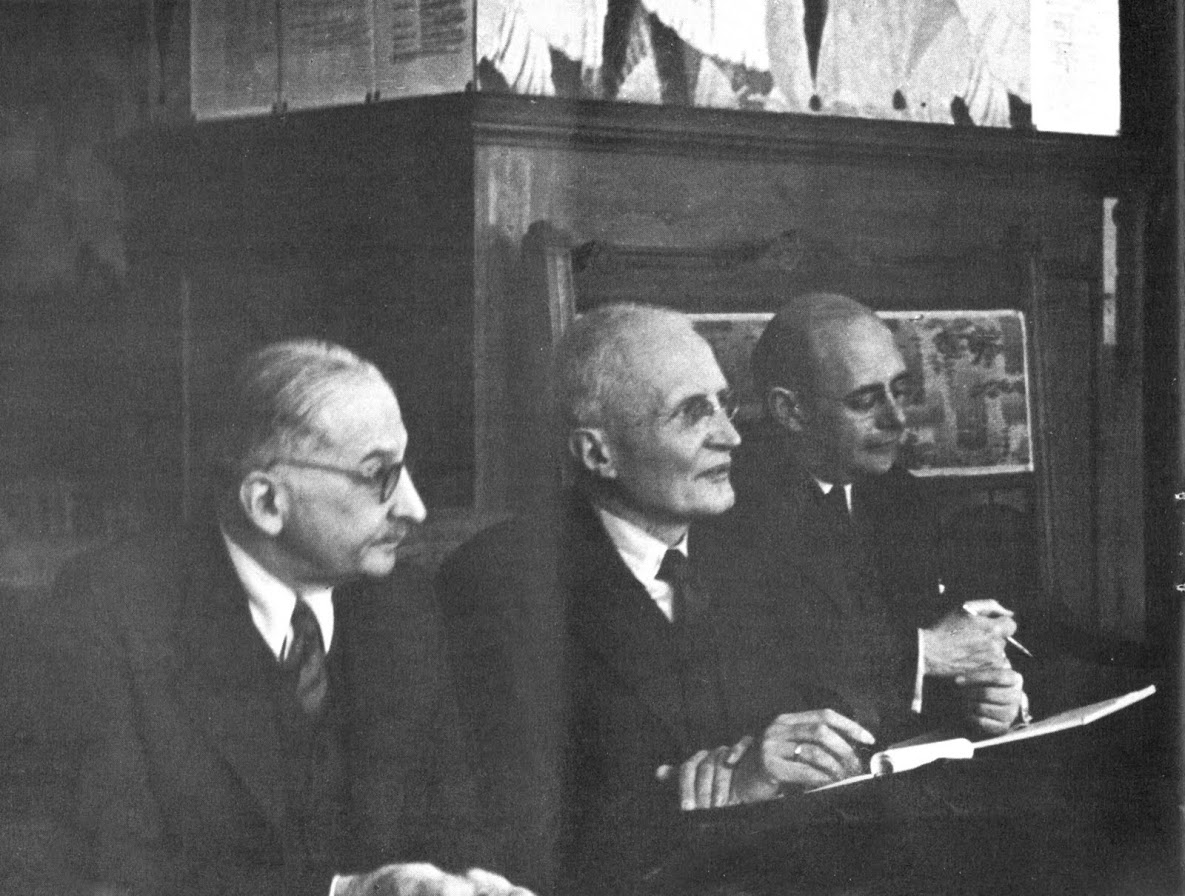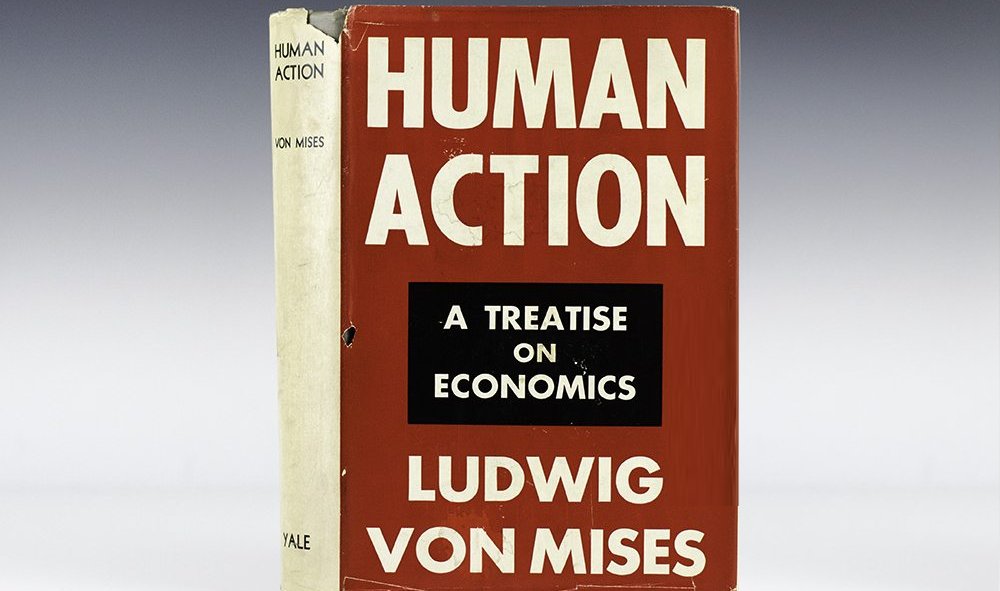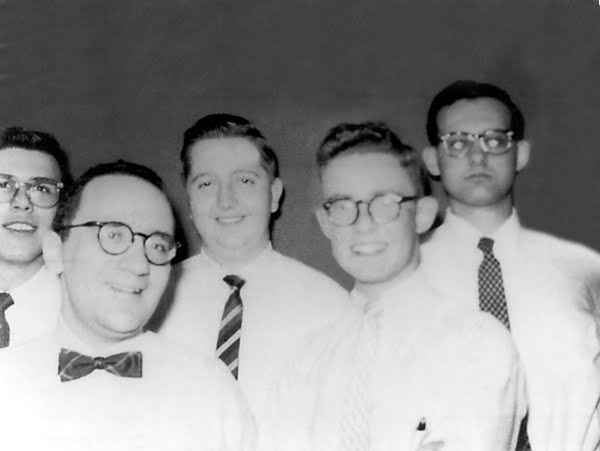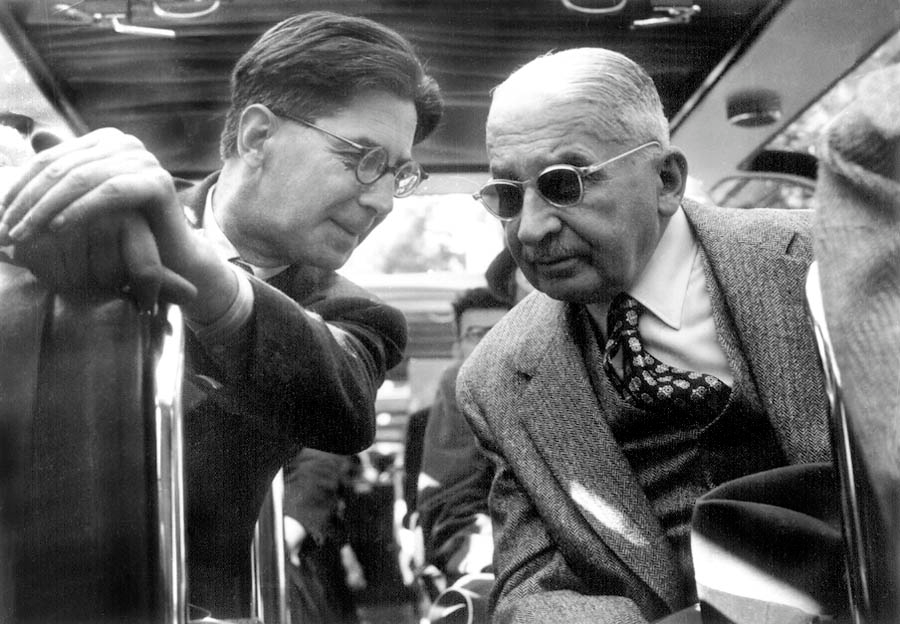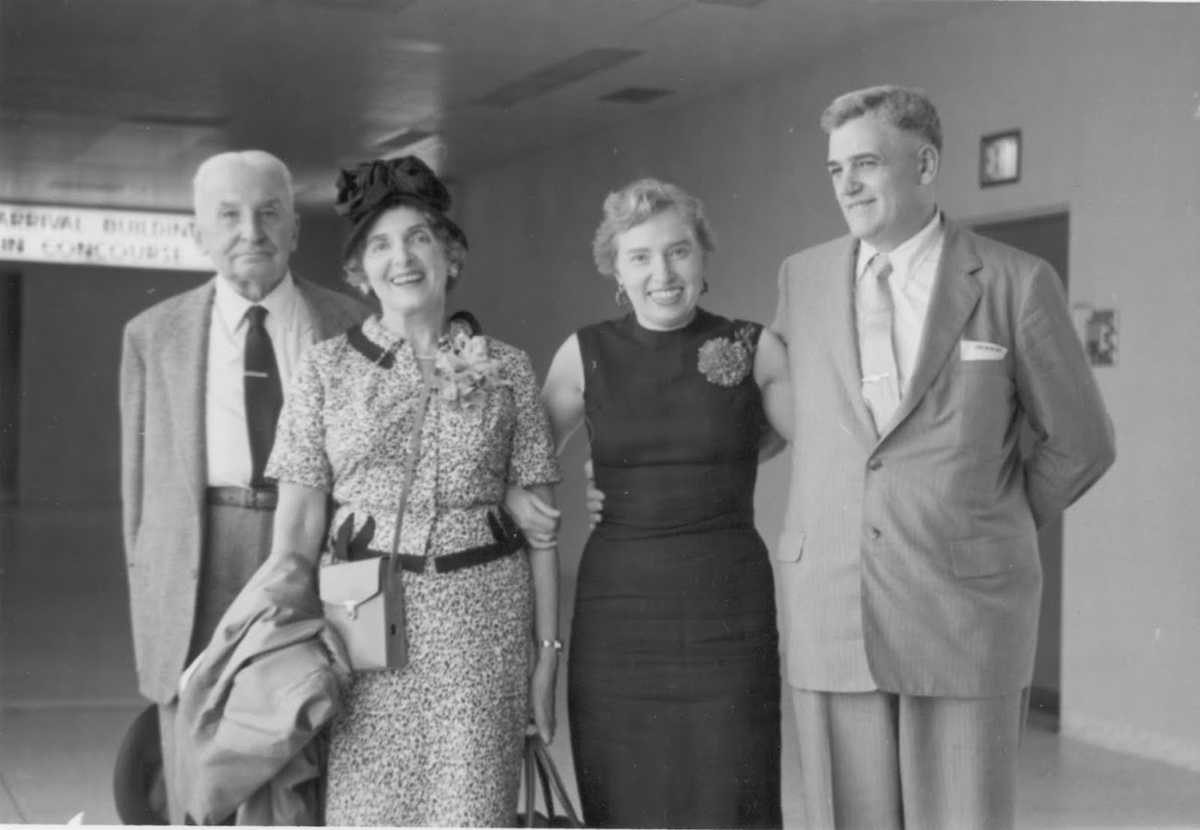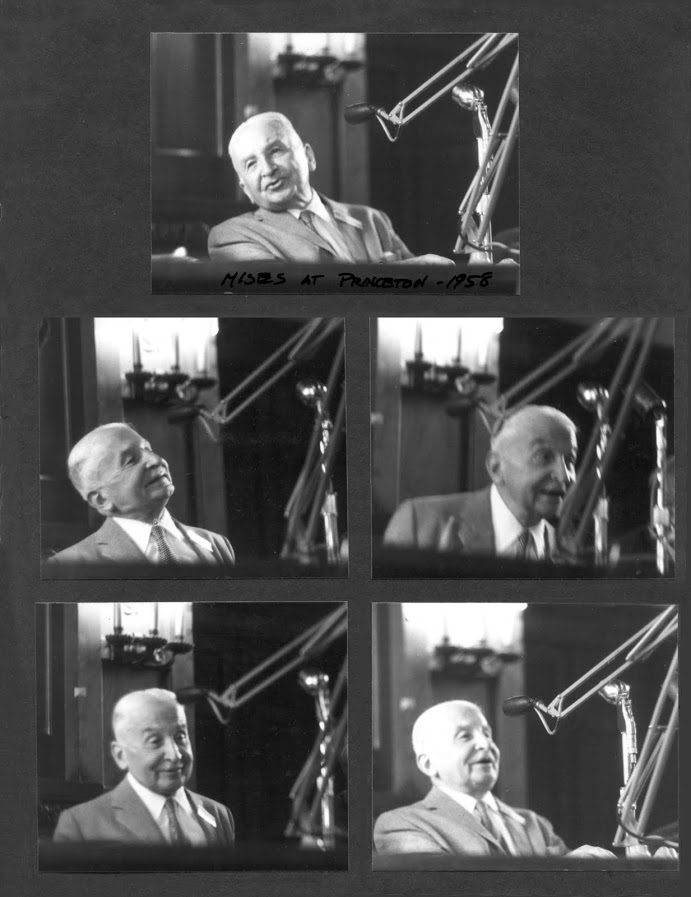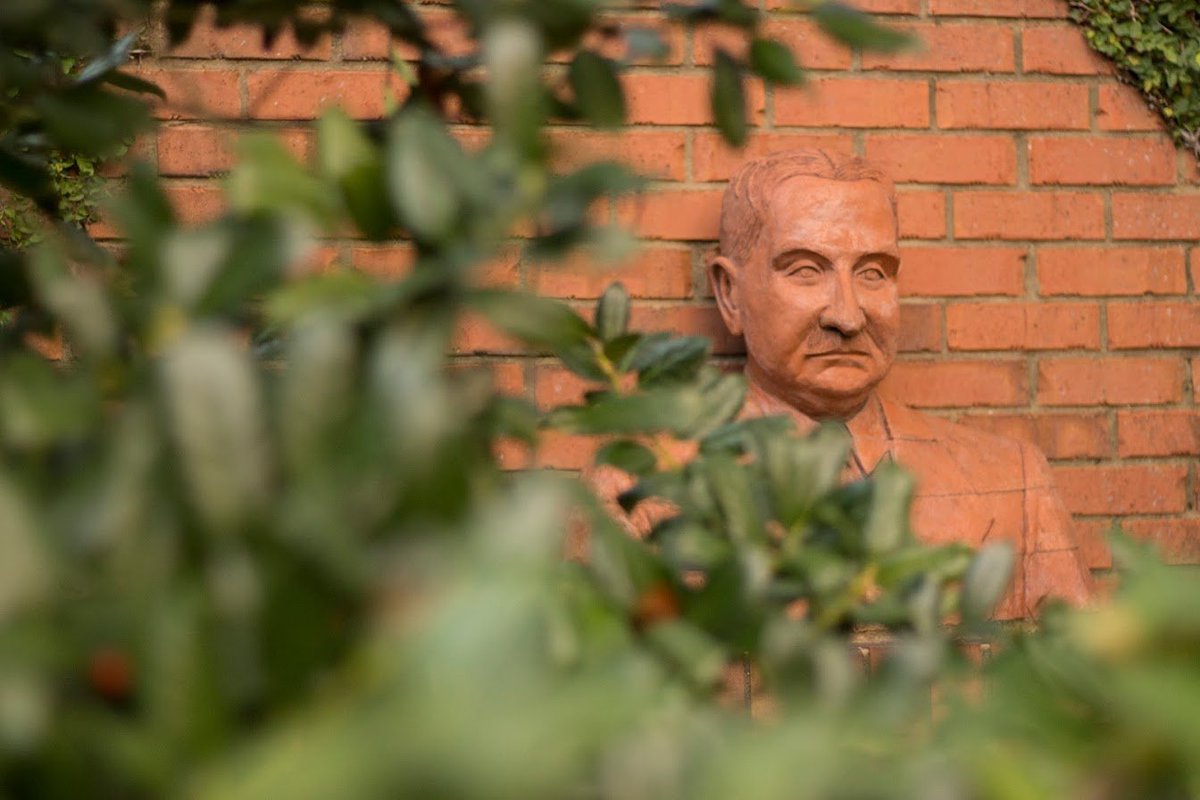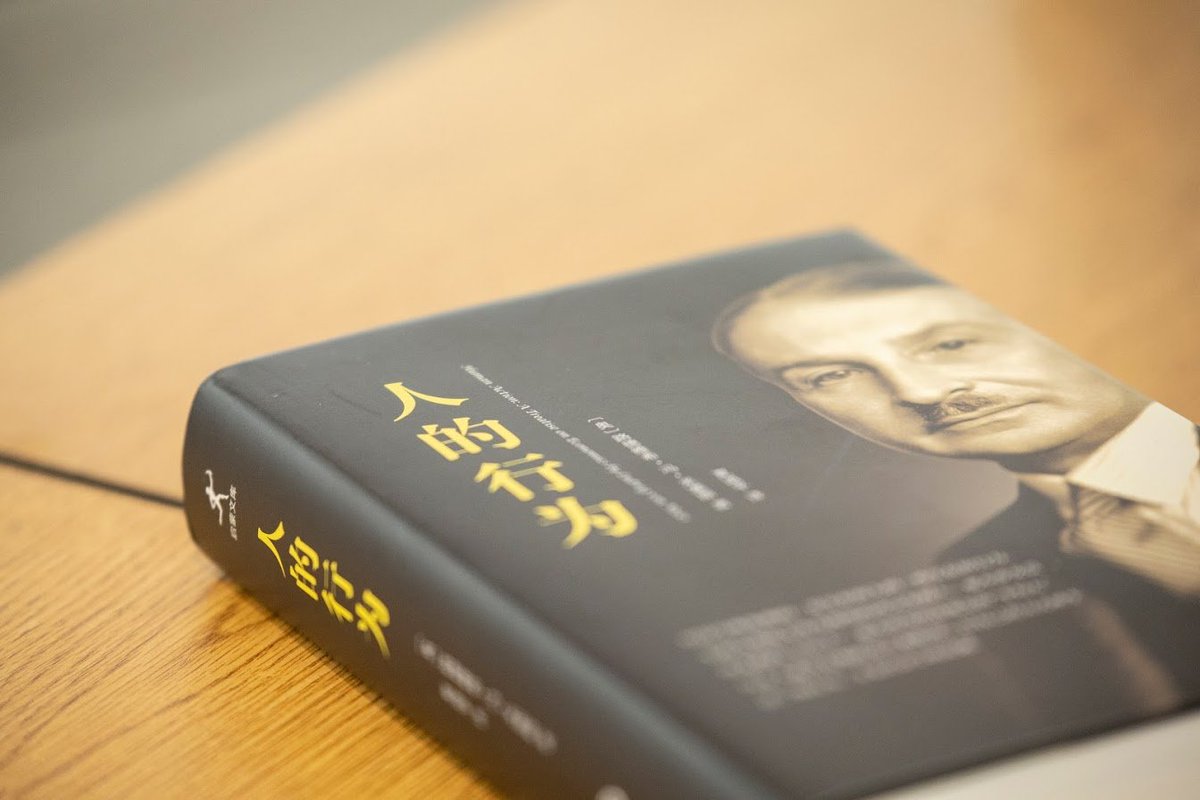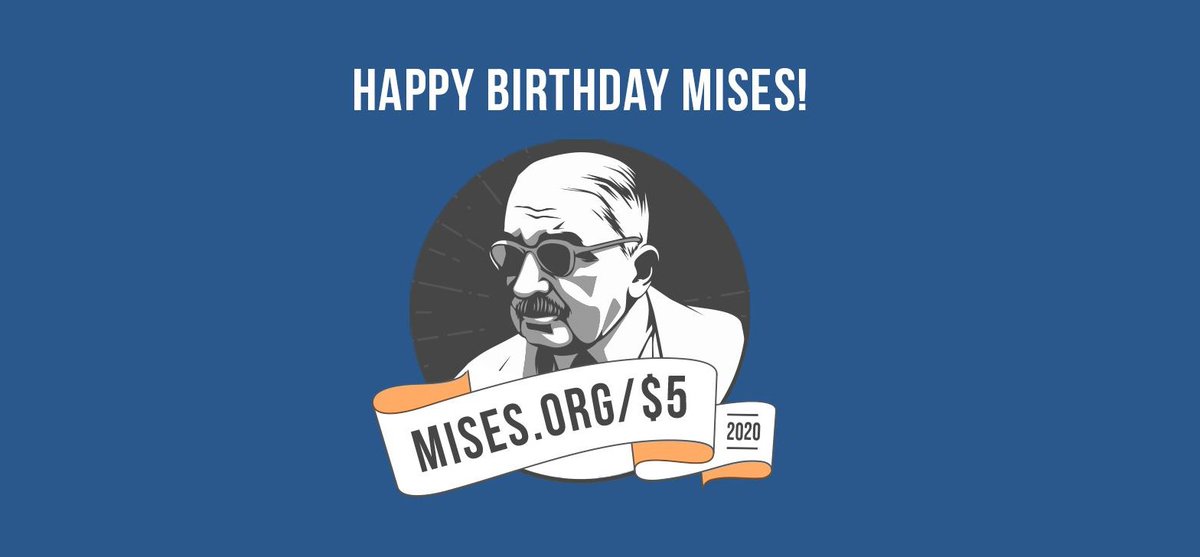In celebration of his birthday, a look at the life of Ludwig von Mises.
Mises was born on Sept 29, 1881 in the city of Lemberg, Galicia, Austria-Hungary (now Lviv, Ukraine)
Here& #39;s a photo of young Lu (center), with his brothers Karl (left) and Richard (right)
Mises was born on Sept 29, 1881 in the city of Lemberg, Galicia, Austria-Hungary (now Lviv, Ukraine)
Here& #39;s a photo of young Lu (center), with his brothers Karl (left) and Richard (right)
At age 30, Mises wrote Theorie des Geldes und der Umlaufsmittel. The book, translated into Theory of Money and Credit, integrated money and banking into the Mengerian theory of value and prices.
It still remains one of the most significant works in the Austrian tradition.
It still remains one of the most significant works in the Austrian tradition.
During the fighting, he continued to write on public policy. A friend was amazed he did so "even in a shower of bullets."
Following the Great War, Mises wrote Nation, State, and Economy an analysis of German imperialism and the causes of WWI.
In the aftermath of the war, a new threat captures Mises& #39;s Austria - the political rise of socialism.
In the aftermath of the war, a new threat captures Mises& #39;s Austria - the political rise of socialism.
In the early 1920s, Mises presents an original critique of the growing socialist movement focused on economic calculation. His book "Socialism" is published in German in 1922 and hailed by both liberals and socialists alike as the most powerful challenge to the socialist project.
In December 1921, on the recommendation of Friedrich von Wieser, Mises hires a young FA Hayek to assist him in the research of business cycles.
At the time, Mises encouraged Hayek and all his students to focus on the question of inflation - a growing problem.
At the time, Mises encouraged Hayek and all his students to focus on the question of inflation - a growing problem.
Understanding that the leading source of Austria& #39;s economic struggles was government ignorance, Mises became a leading advocate for monetary reform. During this time, he began his famous seminars with the aim of educating allies and students on his monetary theory.
In the 1920s, Mises expanded on his criticism of interventionism. As Guido Hulsmann explains, the issue he saw was fundamentally about the state interjecting itself as an unwanted co-owner of property, creating separate issues than outright nationalization.
The 1929 stock crash impacts the world. Mises writes "Causes of the Economic Crisis," in response, leading a reviewer to note:
"Professor Mises, who has been called the ‘last knight of liberalism,’ fights indefatigably against government intervention in the market process.”
"Professor Mises, who has been called the ‘last knight of liberalism,’ fights indefatigably against government intervention in the market process.”
The rise of Hitlerism in the German-speaking world forced Mises to leave Vienna for a position in Geneva. His enemies were not content with this relocation. In Switzerland, Ludwig and his wife, Margit, survived an attempted kidnapping while on a drive.
In Geneva, Mises is dedicated to writing a comprehensive treatise of economics, Nationalokonomie.
Unfortunately, notes Hulsmann:
"[It] came off the press in May 1940, just in time to survive the collapse of its publisher, only to be buried under the avalanche of the war."
Unfortunately, notes Hulsmann:
"[It] came off the press in May 1940, just in time to survive the collapse of its publisher, only to be buried under the avalanche of the war."
With war tensions mounting, and a wanted man by the Nazis, Mises decides to leave Europe for the United States. Living out of a single suitcase, Mises and his wife carefully navigate their way to safe passage on a ship called the Europe, for passage to America.
In America, Mises befriends the great Henry Hazlitt, who wrote a favorable review of Socialism. Hazlitt became a close friend and vital professional contact for Mises, whose defense of capitalism put him at odds with the intellectual climate of FDR& #39;s America.
The intellectual climate of the US was so bad that Mises had great difficulty finding an academic position for himself. Relying on grants from benefactors to produce smaller works, Mises feared that his scholastic career was over.
Luckily, Mises was able to attract new allies to his cause, including Leonard Read - who would found @feeonline - and the National Association of Manufacturers, who sought intellectual firepower to push back against FDR& #39;s New Deal.
In 1945, Mises became a "Visiting Professor" at New York University, a position he keeps for over 20 years. His salary is paid by a benefactor, and not the school, but allows Mises to offer seminars that cultivate a new generation of students in the Austrian tradition.
In 1947, Mises became a founding member of the Mont Pelerin Society, dedicated to resurrecting "traditional liberal theory" after WWII. Mises would go on to clash with colleagues who did not share his critiques on government intervention.
In September 1949, Human Action - a comprehensive economic treatise written in English - is published. The book is a remarkable success.
In the words of Hulsmann:
"Overnight, Mises turned into the central intellectual figure of the entire American Right."
In the words of Hulsmann:
"Overnight, Mises turned into the central intellectual figure of the entire American Right."
Coupled with the NYU Seminar, Human Action inspired a new generation of Misesians, including Murray Rothbard, Israel Kirzner, Ralph Raico, and @GGReisman.
Rothbard is hired to write a textbook version of Human Action, which becomes its own treatise: Man, Economy, and State.
Rothbard is hired to write a textbook version of Human Action, which becomes its own treatise: Man, Economy, and State.
The success of Human Action sparks an American revival of Mises& #39;s work. English translations of books, such as Theory of Money and Credit, are published, as are smaller works for a popular audience.
Among Mises& #39;s most important students were Bettina and Percy Greaves. The two were faithful attendees of Mises& #39;s seminars, popularizers of his ideas, and assisted Ludwig and Margit in their later years.
Mises maintained a vigorous schedule through the 1950s and early 1960s. Along with his seminar, he spoke around the world.
His later works included The Anti-Capitalistic Mentality (1956), Theory and History (1957), and The Ultimate Foundation of Economic Science (1962).
His later works included The Anti-Capitalistic Mentality (1956), Theory and History (1957), and The Ultimate Foundation of Economic Science (1962).
Even into the 1970s, Mises continued to address audiences on the importance of economics and liberalism - particularly with growing concerns with inflation and debt.
In 1971, a 90-year old Mises inspired a young @RonPaul to run for Congress. https://mises.org/power-market/mises-lecture-inspired-ron-paul-run-congress">https://mises.org/power-mar...
In 1971, a 90-year old Mises inspired a young @RonPaul to run for Congress. https://mises.org/power-market/mises-lecture-inspired-ron-paul-run-congress">https://mises.org/power-mar...
Ludwig von Mises passed away in 1973 at the age of 93.
He lives on today with the continued relevance of his work. More students around the world read Mises today than ever before.
There is no better tribute to a man who understood the power of ideas on the world.
He lives on today with the continued relevance of his work. More students around the world read Mises today than ever before.
There is no better tribute to a man who understood the power of ideas on the world.
Help the Mises Institute continue to keep the legacy of Ludwig von Mises alive.
Become a member for just $5 a month at http://Mises.org/$5 .">https://Mises.org/$5"&...
Become a member for just $5 a month at http://Mises.org/$5 .">https://Mises.org/$5"&...

 Read on Twitter
Read on Twitter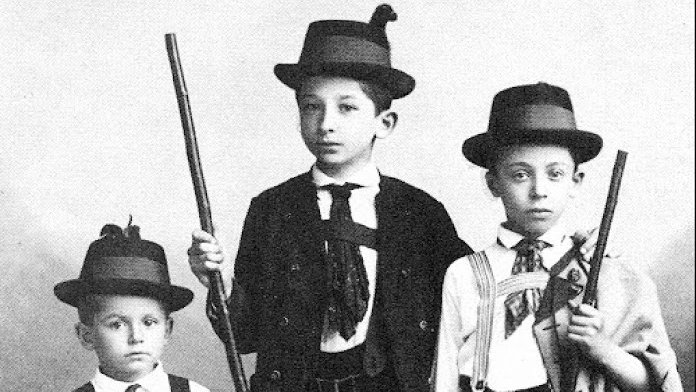
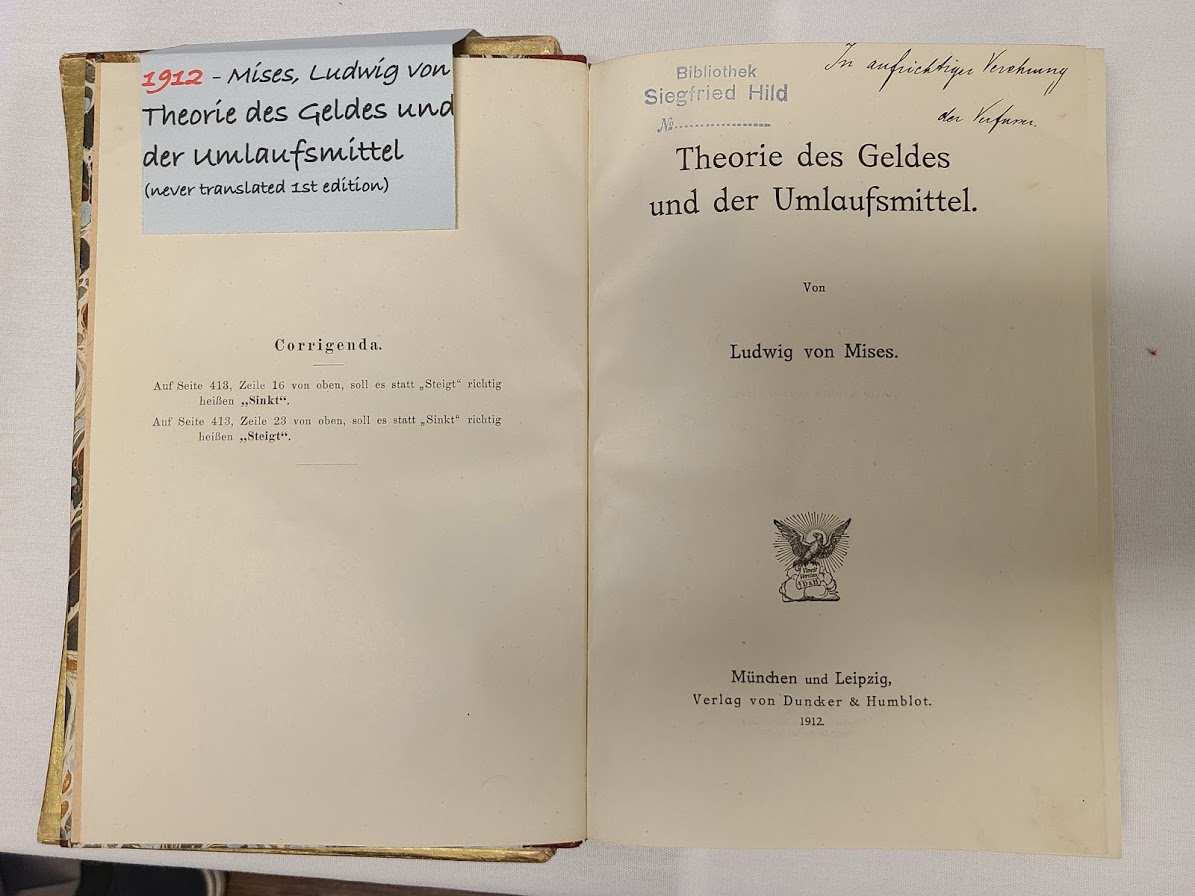
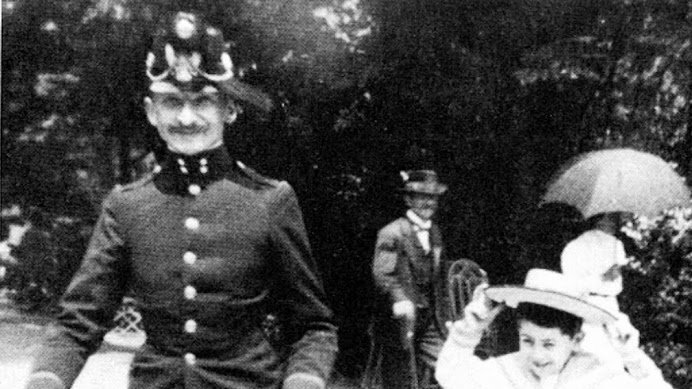 Mises as an officer during WWI. In his first taste of war, he served as an artillery officer on the front lines, holding off a Russian advance. During the fighting, he continued to write on public policy. A friend was amazed he did so "even in a shower of bullets."" title="https://abs.twimg.com/emoji/v2/... draggable="false" alt="📷" title="Kamera" aria-label="Emoji: Kamera">Mises as an officer during WWI. In his first taste of war, he served as an artillery officer on the front lines, holding off a Russian advance. During the fighting, he continued to write on public policy. A friend was amazed he did so "even in a shower of bullets."" class="img-responsive" style="max-width:100%;"/>
Mises as an officer during WWI. In his first taste of war, he served as an artillery officer on the front lines, holding off a Russian advance. During the fighting, he continued to write on public policy. A friend was amazed he did so "even in a shower of bullets."" title="https://abs.twimg.com/emoji/v2/... draggable="false" alt="📷" title="Kamera" aria-label="Emoji: Kamera">Mises as an officer during WWI. In his first taste of war, he served as an artillery officer on the front lines, holding off a Russian advance. During the fighting, he continued to write on public policy. A friend was amazed he did so "even in a shower of bullets."" class="img-responsive" style="max-width:100%;"/>
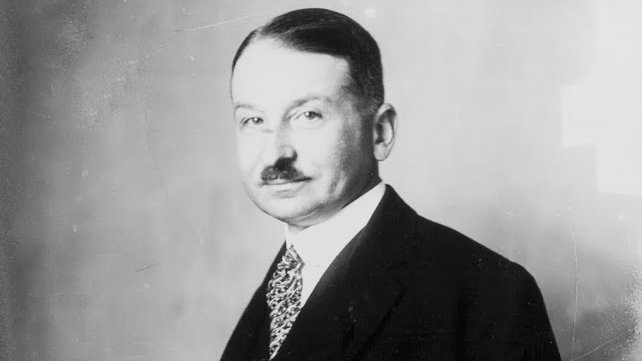
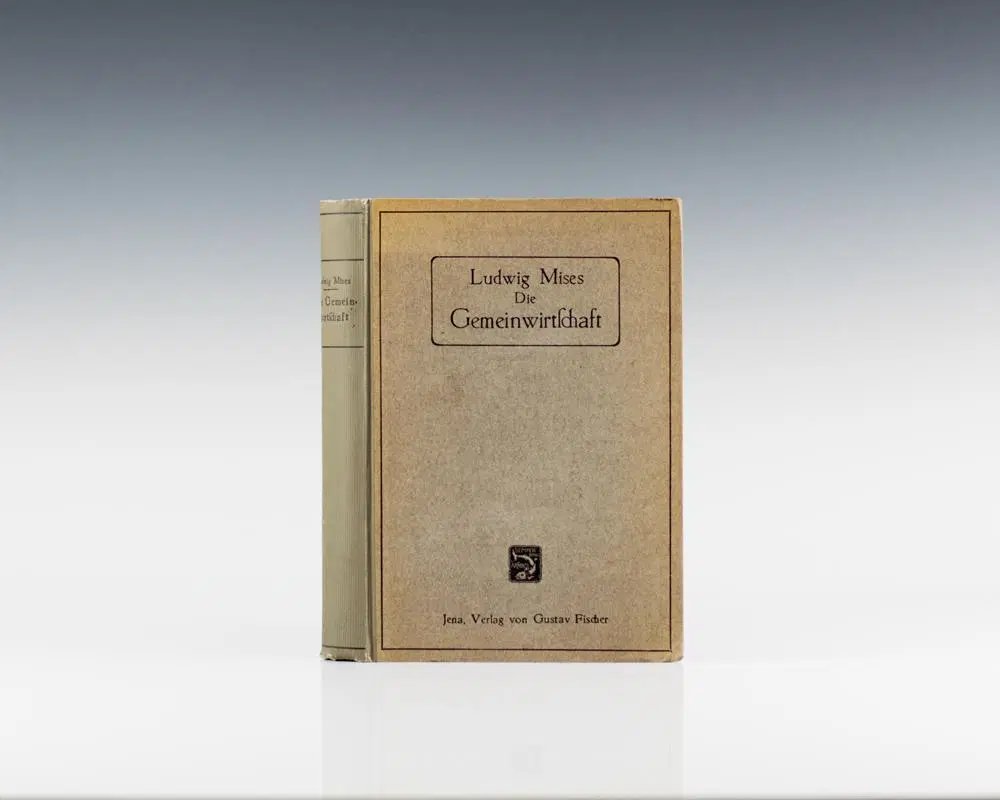
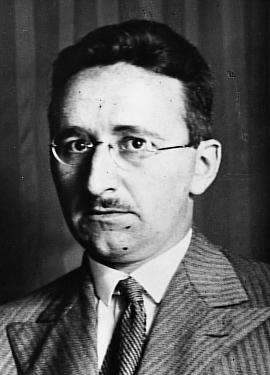
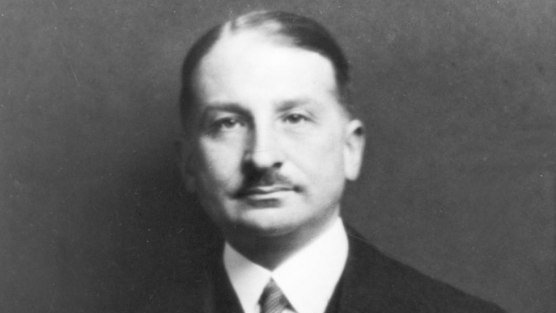
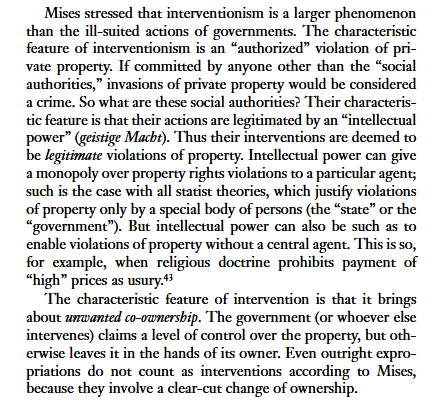
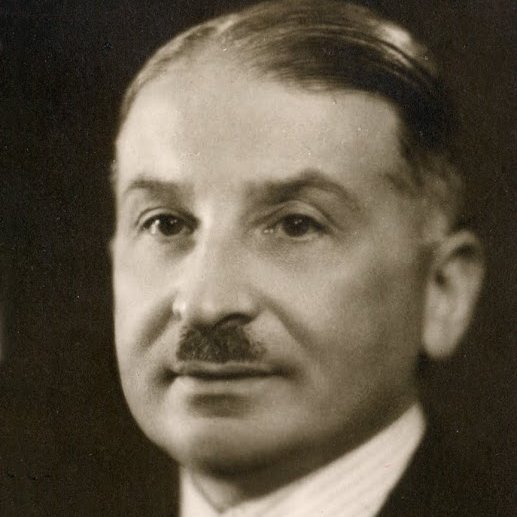
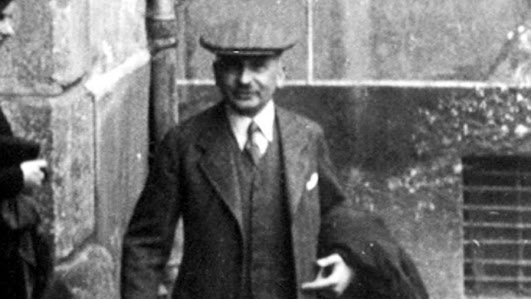
![In Geneva, Mises is dedicated to writing a comprehensive treatise of economics, Nationalokonomie.Unfortunately, notes Hulsmann:"[It] came off the press in May 1940, just in time to survive the collapse of its publisher, only to be buried under the avalanche of the war." In Geneva, Mises is dedicated to writing a comprehensive treatise of economics, Nationalokonomie.Unfortunately, notes Hulsmann:"[It] came off the press in May 1940, just in time to survive the collapse of its publisher, only to be buried under the avalanche of the war."](https://pbs.twimg.com/media/EjGNvYSWkAIht8W.jpg)
